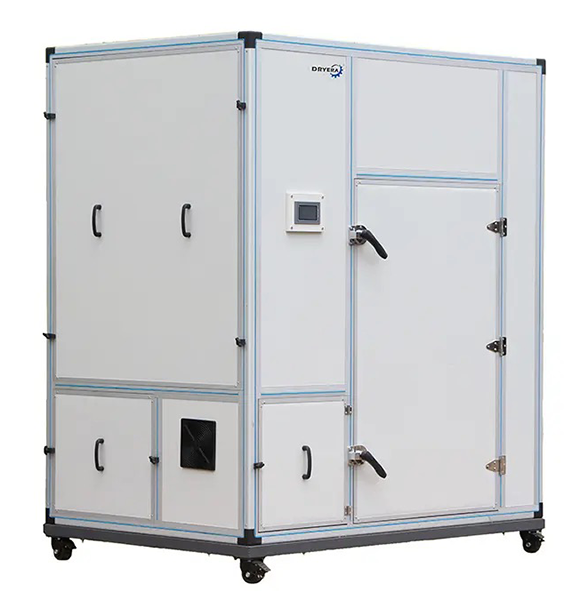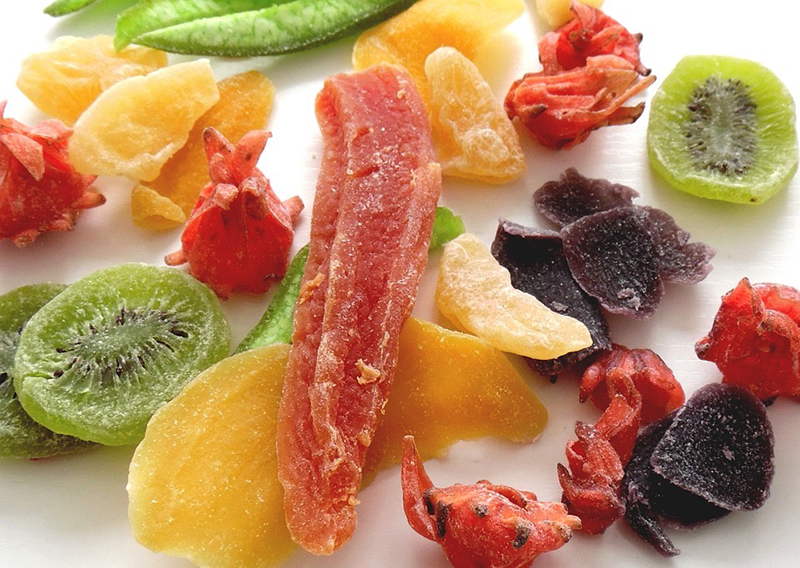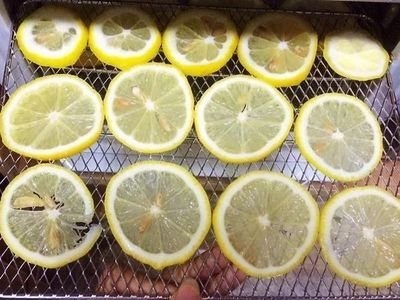
Content Menu
● Understanding Heat Pump Dryers
● How Heat Pump Dryers Work
● Benefits of Using Heat Pump Dryers
● Applications of Heat Pump Technology in Food Dehydration
● Choosing the Right Heat Pump Dryer
● Nutritional Benefits of Dehydrated Foods
● Environmental Impact
● Conclusion
● FAQ
>> 1. What is a heat pump dryer?
>> 2. How does a heat pump dryer work?
>> 3. Are heat pump dryers more expensive than traditional dryers?
>> 4. Can I use a heat pump dryer for food dehydration?
>> 5. What maintenance do heat pump dryers require?
● Citations:
Heat pump dryers have gained popularity in recent years due to their energy efficiency and gentle fabric care. These appliances utilize advanced technology to dry clothes effectively while minimizing environmental impact. In this article, we will explore the benefits of using a heat pump dryer, particularly in the context of food dehydrators, and how they contribute to preserving food quality.

Understanding Heat Pump Dryers
Heat pump dryers operate on a principle similar to that of air conditioning systems. Instead of venting hot air outside, they recycle warm air within a closed-loop system. This method not only conserves energy but also allows for more flexible installation options.
- Energy Efficiency: Heat pump dryers use about 30% less energy than traditional vented dryers, making them an eco-friendly choice. They achieve this by reusing the heated air, which significantly reduces electricity consumption.
- Gentle on Fabrics: Operating at lower temperatures (around 50°C), heat pump dryers are less likely to damage delicate fabrics or cause shrinkage. This feature is particularly beneficial for items that require special care.
- Versatile Placement: Unlike conventional dryers that need external ventilation, heat pump dryers can be installed in various locations within your home, including small spaces or apartments.
How Heat Pump Dryers Work
The operation of a heat pump dryer involves several key components:
1. Compressor: It pressurizes the refrigerant, allowing it to absorb heat from the air.
2. Condenser Coils: The heated refrigerant passes through these coils, warming the air that circulates around the clothes.
3. Evaporator Coils: As the warm air absorbs moisture from the clothes, it passes through the evaporator coils where it cools down and condenses moisture into water.
4. Water Collection: The moisture is collected in a tank or can be drained directly, preventing humidity buildup in your laundry area.
This cycle continues until the clothes are adequately dried.
Benefits of Using Heat Pump Dryers
The advantages of heat pump dryers extend beyond just drying clothes:
- Cost Savings: The energy efficiency of heat pump dryers translates into lower utility bills over time. While the initial investment may be higher than conventional dryers, the long-term savings make them a cost-effective choice.
- Preservation of Nutrients in Food Dehydration: When used in food dehydrators, heat pumps help maintain the nutritional value of fruits and vegetables by drying them at low temperatures without compromising their vitamins and minerals.
- Long Shelf Life: Dehydrated foods can last up to two years when stored properly. This reduces food waste and provides healthy snack options throughout the year.
- Healthy Snacking Options: With a food dehydrator utilizing heat pump technology, you can create nutritious snacks free from preservatives or added sugars found in store-bought products.
Applications of Heat Pump Technology in Food Dehydration
Heat pump technology is not limited to laundry; it has significant applications in food preservation:
1. Uniform Drying: Food dehydrators equipped with heat pumps ensure consistent drying across all trays, preventing uneven moisture levels that can lead to spoilage.
2. Versatile Use: You can dehydrate various foods including fruits, vegetables, herbs, and even meats like jerky. This versatility makes it an essential appliance for health-conscious consumers.
3. Reduced Risk of Spoilage: By lowering moisture levels effectively, heat pump dehydrators minimize the risk of bacterial growth and spoilage compared to other preservation methods like canning or freezing.
Choosing the Right Heat Pump Dryer
When selecting a heat pump dryer or food dehydrator, consider the following factors:
- Capacity: Choose a model that fits your household size and laundry needs. Some models offer larger drum capacities for bigger loads.
- Features: Look for features such as adjustable temperature settings, timers, and specialized drying programs for different fabric types or food items.
- Maintenance Requirements: Regular cleaning of filters and coils is necessary to maintain efficiency and prolong the lifespan of your appliance.

Nutritional Benefits of Dehydrated Foods
Dehydrating food not only extends its shelf life but also enhances its nutritional profile:
- Retention of Nutrients: Dehydration preserves vitamins and minerals better than other preservation methods like boiling or frying. This makes dehydrated fruits and vegetables a nutrient-dense option for snacking or cooking.
- Increased Fiber Content: The dehydration process concentrates fiber content in fruits and vegetables, promoting better digestion and overall health.
- Enhanced Flavor: Removing moisture intensifies flavors, making dehydrated foods more enjoyable as snacks or ingredients in recipes.
Environmental Impact
Using a food heat pump dryer has a reduced environmental impact compared to other drying methods:
- Eco-Friendly Operation: Heat pump dryers do not generate emissions or pollutants during their operation. Their energy-efficient design also reduces reliance on fossil fuels, contributing to a lower carbon footprint.
- Sustainable Food Preservation: By extending the shelf life of foods without preservatives, dehydrators promote sustainable eating habits and reduce food waste significantly.
Conclusion
Heat pump dryers represent a significant advancement in laundry technology, offering energy efficiency, gentle fabric care, and versatile installation options. Their application extends beyond clothing to food preservation, providing health benefits through nutrient retention and extended shelf life for dehydrated foods. As consumers become more conscious of their environmental impact and health choices, heat pump technology will likely continue to grow in popularity across various sectors.

FAQ
1. What is a heat pump dryer?
A heat pump dryer is an energy-efficient appliance that dries clothes by recycling warm air within a closed system instead of venting hot air outside.
2. How does a heat pump dryer work?
It works by using a compressor to pressurize refrigerant that absorbs heat from the air; this heated air then circulates around wet clothes before condensing moisture into water.
3. Are heat pump dryers more expensive than traditional dryers?
Yes, they typically have a higher upfront cost but offer significant savings on energy bills over time due to their efficiency.
4. Can I use a heat pump dryer for food dehydration?
Absolutely! Heat pump technology is effective for food dehydration as it preserves nutrients while evenly drying various foods without high temperatures.
5. What maintenance do heat pump dryers require?
Regular cleaning of filters and coils is essential to ensure optimal performance and prevent issues like longer drying times or mold growth.
Citations:
[1] https://etsolutions.in/how-does-a-food-dehydrator-work-explore-the-benefits-of-food-dehydrators/
[2] https://www.seriouseats.com/best-food-dehydrators-5216308
[3] https://vn.dryers-dehydrators.com/info/advantage-of-food-heat-pump-dryer-81163580.html
[4] https://support.tradedepot.co.nz/support/solutions/articles/51000332000-how-to-care-for-your-heat-pump-dryer
[5] https://www.consumer.org.nz/articles/tips-to-get-the-most-clothes-dryer
[6] https://www.familyhandyman.com/article/heat-pump-dryer/
[7] https://www.webstaurantstore.com/guide/741/food-dehydrators-buying-guide.html
[8] https://www.vice.com/en/article/cosori-food-dehydrator-review/
[9] http://sciencebeingjournal.com/sites/default/files/Octa%20J.%20Biosci.%20Vol.%2010%20(2)124-133_0.pdf
[10] https://www.youtube.com/watch?v=liVWsFW19-M
[11] https://www.choice.com.au/home-and-living/laundry-and-cleaning/dryers/articles/what-is-a-heat-pump-dryer
[12] https://www.webmd.com/diet/dehydrating-food-good-for-you
[13] https://www.which.co.uk/reviews/tumble-dryers/article/tumble-dryer-tips-and-maintenance-a43Lb8u6r8ou
[14] https://www.energystar.gov/products/clothes_dryers/heat-pump-dryer











